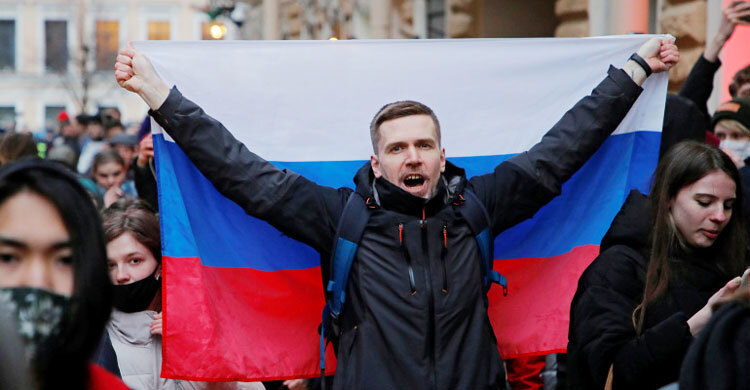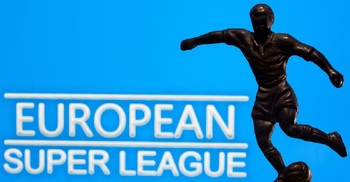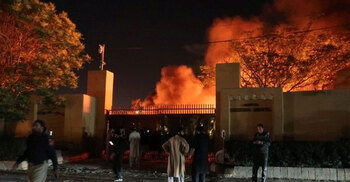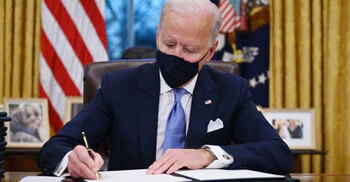Hundreds arrested as Russia cracks down on Navalny supporters

Thousands of supporters of imprisoned Russian opposition leader Alexei Navalny crowded into central Moscow on Wednesday in nationwide demonstrations calling for his freedom as UN experts warned that the Kremlin critic’s life was in “serious danger”.
More than 400 people were arrested across the country in connection with the protests, according to a human rights group. Dozens were detained before the protests even began, including two top Navalny associates in Moscow, reports Aljazeera.
Supporters of President Vladimir Putin’s most outspoken opponent fear he could die soon and are demanding he be given proper medical care.
Officials say he has been treated as any other convict would be, and have warned that Wednesday’s rallies are illegal.
Navalny’s team called the unsanctioned demonstrations after reports that his health is deteriorating while on hunger strike, which he began March 31.
“The situation with Alexei is indeed critical, and so we moved up the day of the mass protests,” Vladimir Ashurkov, a close Navalny ally and executive director of the Foundation for Fighting Corruption, told The Associated Press news agency.
“Alexei’s health has sharply deteriorated, and he is in a rather critical condition. Doctors are saying that judging by his test (results), he should be admitted into intensive care.”
UN human rights experts on Wednesday called on Russia to allow jailed Kremlin critic Alexei Navalny to be medically evacuated abroad, saying they feared his life was in “serious danger”.
Navalny has been kept in harsh conditions in a high-security penal colony and “denied access to adequate medical care”, conditions that may amountin Saint Petersburg, Russia April 21, 2021 to torture, they said in a statement.
“We urge the Russian authorities to ensure Mr. Navalny has access to his own doctors and to allow him to be evacuated for urgent medical treatment abroad, as they did in August 2020,” said the UN experts, who include those with mandates on torture and on the right to freedom of opinion.
Navalny’s organisation called for the Moscow protesters to assemble on Manezh Square, just outside the Kremlin walls, but police blocked them off.
Instead, a large crowd gathered at the nearby Russian State Library and another lined Tverskaya Street, a main avenue that leads to the square.
In St. Petersburg, police blocked off Palace Square, the vast space outside the Hermitage museum and protesters instead crowded along nearby Nevsky Prospekt.
The OVD-Info group, which monitors protests and detentions, reported 413 arrests in 60 cities.
Navalny’s spokeswoman Kira Yarmysh and close ally Lyubov Sobol were detained near their homes in Moscow hours before a rally in the Russian capital was set to converge on a square near the Kremlin.
Meanwhile, in Russia’s Far East, around 200-300 people came out to support Navalny in the city of Vladivostok, some of them toting banners saying “Freedom for political prisoners” and “No war, repressions and torture!”
“Everyone realises the current authorities have nothing new to propose for the country. We need a new generation of politicians. I see Navalny as one of them,” Ilya, a 19-year-old student was quoted as saying by Reuters news agency.
Protesters there relocated to a square by the train station as an array of police vans had been brought into the central square where they had planned to gather.
European Council President Charles Michel said it was “deplorable” that Navalny’s closest allies had been taken into custody ahead of the protests.
Another Navalny aide, Ruslan Shaveddinov, tweeted: “Right now across the whole of Russia they are detaining potential protesters. This is repression. This cannot be accepted. We need to fight this darkness.”
The 44-year-old Navalny was arrested in January upon his return from Germany, where he had spent five months recovering from a nerve agent poisoning he blames on the Kremlin. Russian officials have rejected the accusation.
Soon after, a court found that Navalny’s long stay in Germany violated the terms of a suspended sentence he was handed for a 2014 embezzlement conviction and ordered him to serve two and a half years in prison.
Navalny began the hunger strike to protest prison officials’ refusal to let his doctors visit when he began experiencing severe back pain and a loss of feeling in his legs. The penitentiary service has said Navalny was getting all the medical help he needs.
Navalny’s physician, Dr. Yaroslav Ashikhmin, said recently that test results he received from Navalny’s family showed sharply elevated levels of potassium, which can bring on cardiac arrest, and heightened creatinine levels that indicate impaired kidneys and he “could die at any moment”.
On Sunday, he was transferred to a hospital in another prison and given a glucose drip. Prison officials rebuffed attempts by his doctors to visit him there.





